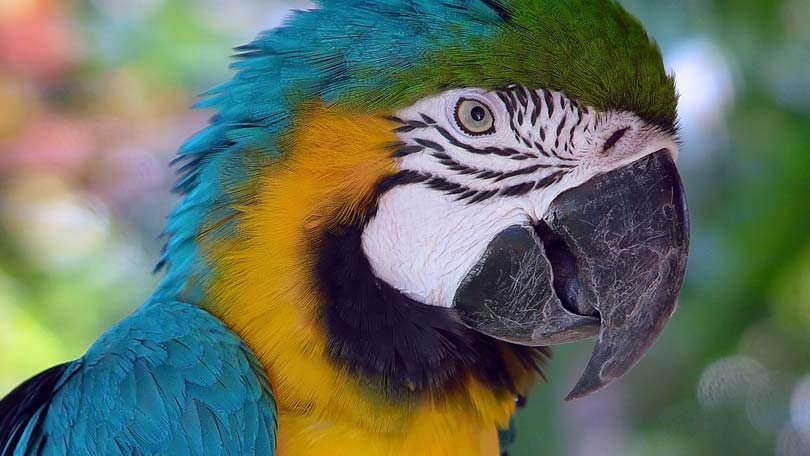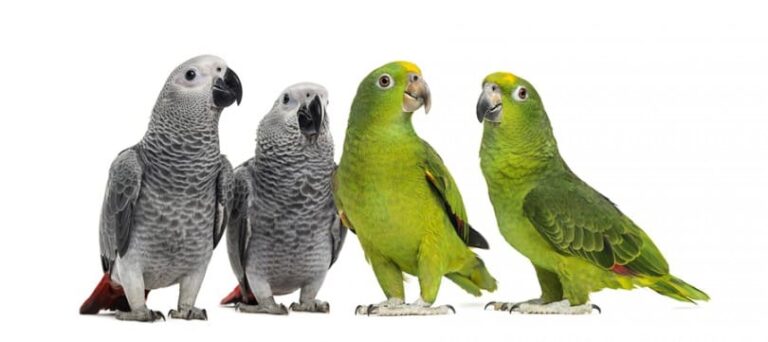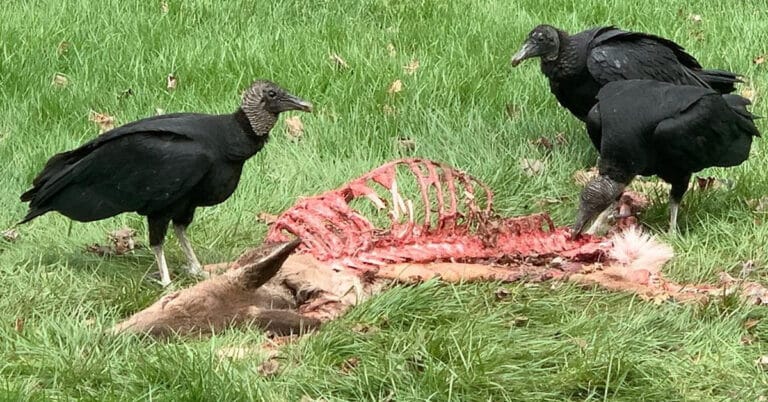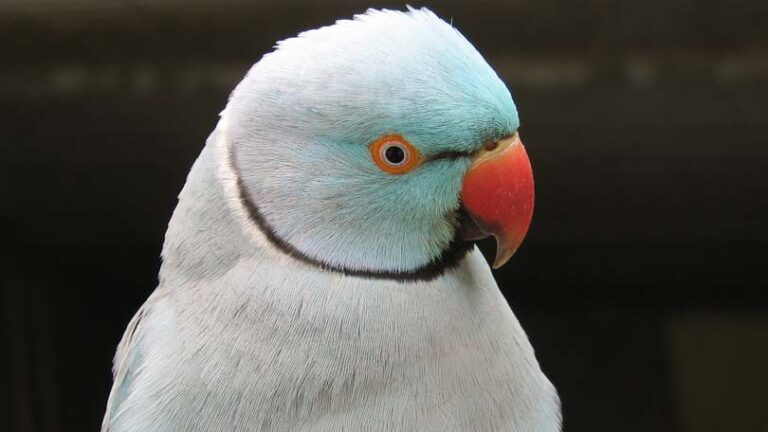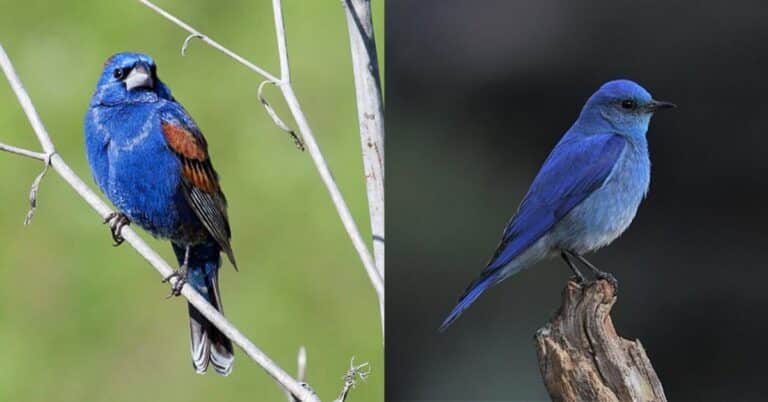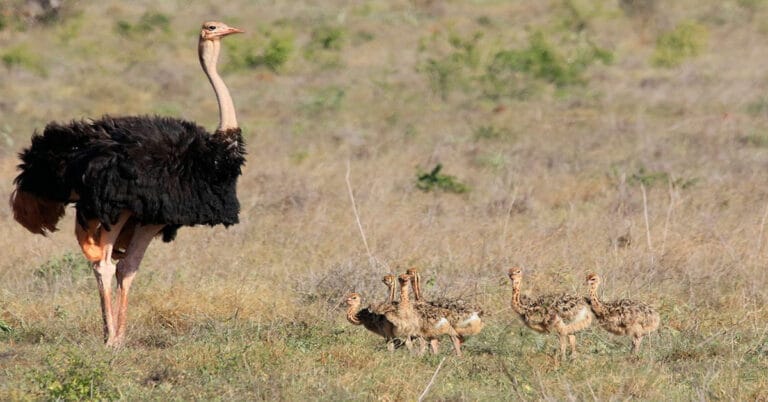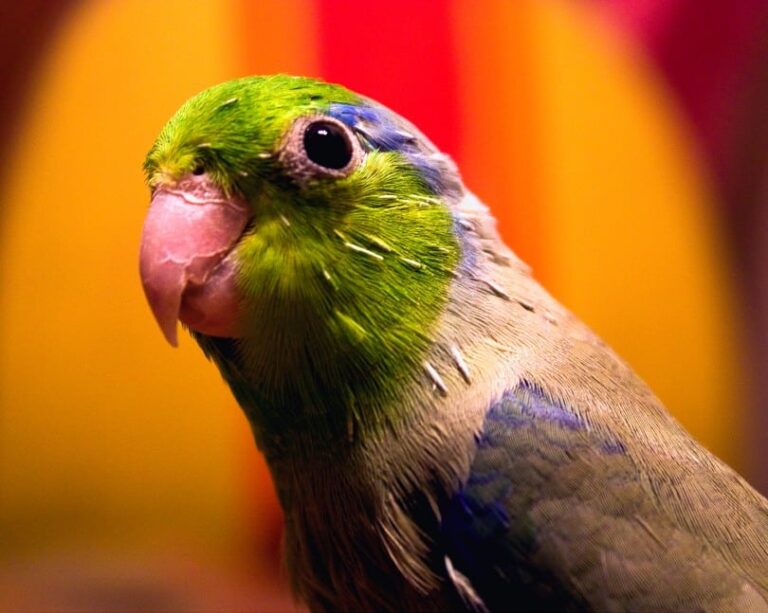Life Expectancy of Parrots
Most people probably don’t give a lot of thought to the lifespan of their pets. We adopt dogs, cats, and hamsters understanding that we will lose them one day. Owning a parrot is a bit different. The life expectancy of many parrots ranges from 50 to 70 years, which means that your bird may very well outlive you. With the exception of tortoises, no other animal commonly kept as a pet has a lifespan that exceeds that of a large parrot. If you purchase a young Macaw when you are 40 years old, and your bird lives to the ripe old age of 70, you would have to reach well beyond the century mark to outlive your pet. The life expectancy of parrots is something to consider when acquiring a bird and requires careful planning.
Of course, not all parrots live to be 70 or 80 years of age. The life expectancy of parrots depends on many factors and corresponds to the size of the bird. Generally speaking, the smaller the bird, the shorter its lifespan. A Budgie, when properly cared for, may live as long as 10 years; a Cockatoo given the same high quality of care could live to the age of 80.
Estimates vary widely, but here is a list of commonly owned parrots and their maximum life expectancies:
- Budgie – 10 years
- Lovebird – 15 years
- Cockatiel – 20 years
- Conure – 25 years
- Senegal Parrot – 25 years
- Amazon Parrot – 60 years
- African Grey – 50 years
- Macaw – 70 years
- Cockatoo – 80 years
It bears repeating that these are estimates only, and sources vary widely on these numbers. Much more research is needed on the life expectancy of parrots, particularly when it comes to the larger species. These figures should be used as guidelines only, giving parrot owners and prospective parrot owners alike, an idea on how long their pet might live. Parrots sometimes live much shorter lives than expected. Likewise, there are record- setting parrots that live beyond these numbers.
Factors Influencing the Life Expectancy of a Parrot
Many factors influence the life expectancy of a parrot. Genetic makeup surely plays a role, just as it does with humans. The bird owner has little control over the heredity of their pet, but there are other determining factors that the owner does control.
The age a parrot reaches largely depends upon the quality of the bird’s diet. A parrot fed a quality diet consisting of pellets, seeds, grains, nuts, and fresh fruits and vegetables will in all likelihood outlive a bird that exists on seeds alone.A bird that receives natural sunlight or full spectrum lighting will be able to process nutrients better than one that receives only artificial light. Similarly, a parrot that is given sources of calcium, such as boiled eggshells, will maintain stronger bones than a bird fed a diet lacking calcium. A proper balance of protein, vitamins, minerals, and fats is essential to the well- being and longevity of any bird. The worst thing any parrot owner can do is feed their bird a diet consisting primarily of sunflower seeds, which are relished by birds, but contain high levels of fat and few nutrients. The old adage “you are what you eat” applies to birds, too.
In addition to feeding one’s parrot a varied and high quality diet, and providing the necessary lighting, an owner can contribute to their bird’ health and longevity by ensuring that their pet gets the proper rest it needs. If you are a late night owl and routinely keep your parrot awake until 3:00 AM, your bird will eventually suffer. Parrots nap during the day, but it is to their benefit to have uninterrupted sleep in a darkened room for a minimum of 8 to 10 hours per night.
An owner who takes their pet bird to an avian veterinarian for regular checkups is going the extra mile to ensure that their parrot is in good health. In the wild, the weak and sick are more readily preyed upon, so prey animals do their best to conceal signs of illness. What this means is that you may not notice that your bird is sick until your animal is quite ill. Regular visits to an avian veterinarian over the life of your bird will likely increase the life expectancy of your parrot.
Good hygiene is another important consideration. Cages , perches, food bowls, toys and playstands must all be cleaned and disinfected regularly using bird-safe products or water and vinegar. Change your bird’s water as often as necessary, even if this is several times a day. Harmful bacteria grow quickly in water and can sicken your bird. Likewise, rinse all fruits and vegetables, and never feed your bird overripe or spoiled food. Remove all uneaten food promptly.
Sadly, many birds die prematurely because of loss and accidents. Birds that do not have their flight feathers clipped can easily escape through an open window or door. Birds left on a front porch or deck can fall victim to cats or other predators. Some uninformed owners feed their parrot avocado, chocolate, or another toxic food, unaware of the hazards. The parrot left unattended outside of its cage may chew electrical cords, drown in an open toilet, or burn itself on a hot stove.
Other Issues to Consider
Given the long life expectancy of parrots, the bird owner faces several issues that deserve consideration. If you acquire your parrot when you are in your 20s or 30s, it is reasonable that your bird will be with you through most of your life experiences, including marriage, children, illnesses, career changes, and relocation. To prepare your parrot for the inevitable change and stress that a lifetime brings, it is important to properly socialize your bird so that it learns to adapt to different people and situations. If your parrot accompanies you on short trips and is introduced to guests in your home, for example, your bird will more readily adjust to changes over the course of its life and yours.
The possibility of your parrot outliving you deserves consideration. The reality is that by the time a person is settled and able to afford a parrot, he or she may be middle-aged. If a 50 year old adopts a young parrot, the odds are that the owner will die before the bird. It is important to decide how your bird will be cared for in the event of your failing health or death. You may even want to name a caregiver for your bird and allocate part of your estate to your bird’s care. No one likes to think about these matters, but owning a parrot requires assuming responsibility for the life of your pet, even if it extends beyond your own. It is a special privilege and a joy to spend a lifetime with a parrot, but it is also a huge responsibility.

Having discovered a fondness for insects while pursuing her degree in Biology, Randi Jones was quite bugged to know that people usually dismissed these little creatures as “creepy-crawlies”.

